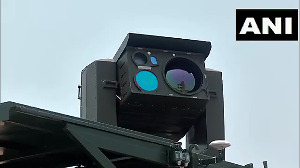The World Anti-doping Agency on Sunday expressed its concern over the Board of Control for Cricket in India's decision to reject a controversial World Anti-Doping Agency (WADA) clause which makes it mandatory for Indian cricketers to be available for out of competition testing.
WADA President John Fahey told PTI that he was concerned of the Indian Board backing its players who objected to the "whereabouts" clause, which requires them to furnish information about their location three months in advance for out of competition tests.
"WADA laments the decision of the BCCI and is concerned by it," Fahey said in an e-mail reply.
"WADA expects that Indian cricketers and the BCCI will understand that, as the ambassadors and guardians of their sport, they have a duty to protect its integrity and will see the benefits of cooperating with the ICC to enforce the World Anti-Doping Code like the rest of the world," he added.
The head of the world anti-doping watchdog tried to drove home the point that the contentious clause was one of the key principles of efficient doping control.
"One of the key principles of efficient doping control is the possibility to test an athlete without advance notice, and athlete whereabouts information is crucial to ensure that surprise effect.
"Out-of-competition doping controls are one of the most powerful means of deterrence and detection of doping... an important step in strengthening athlete and public confidence in doping-free sport," Fahey added.
The WADA Anti-doping Code has been accepted by 571 sporting organisations, including International Olympic Committee, International Paralympic Committee and International Sports Federation.
This Code has been approved by 191 countries, and also by the UNESCO.
The Indian cricketers have refused to sign the "whereabouts" clause which requires them to furnish information about their location three months in advance for out of competition tests, claiming that it infringes on their privacy.








 © 2025
© 2025